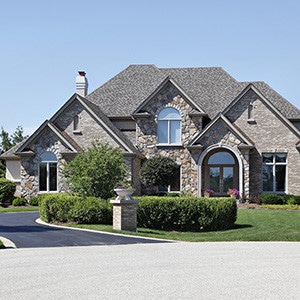
How to Prevent Humidity in Your Home
— February 25, 2015That humid summer air can really make an impact on the quality of life in your home. If the air in your home is often times humid, you could potentially see damage in your walls, floors, and ceilings due to water absorption. If there’s too much water that has absorbed, it can lead to mold in your home.
Mold can bring many illnesses and can cause serious respiratory issues. Not to worry though, there are many preventative measures you can take to minimize the chance of humid air being absorbed into your home’s structure.
Wall Treatments
Using the proper wall treatments will prevent the moisture from humid air from sticking to your drywall. Your walls will want to absorb the moisture, thus possibly leading to mold in the walls. This is an incredible pain, is expensive to fix, and can cause health problems. In order to prevent this from happening, look into vapor-resistant paints for your walls, particularly in the areas of your home that become the most humid.
“In most homes, you will see that the bathroom has humidity issues due to the steam from the hot showers resting on the wall,” said Greg Flanagan, a professional painter in Minneapolis. “With vapor-resistant paint, the water will not be able to get absorbed into the walls.”
Caulk and Weather Stripping
Sealing your home up tight will also prevent humidity damage. Inspecting all of your baseboards for cracks and gaps along the wall and filling them in with caulk will keep moist air from getting soaked into the wood behind the drywall or in the floor. Also, take a look around the windows and doors for areas that may need weather stripping. This will prevent any humid summer air from getting into your home and causing its own problems.
Hard Flooring
Having carpeted flooring in a humid climate creates a higher likelihood of producing mold or mildew. Carpet can be cleaned of mildew with a carpet shampooing machine, but this is the least practical flooring option if you live in a humid climate year-round. With the use of hardwood flooring, it is far less likely that your floor will absorb water from the humid air as long as it has the proper sealing and finish.
“Allow yourself to analyze your home to make sure it is able to fight against the moisture in humid air,” said Alethia Erotas, a professional home builder and business owner. This will give your home the best chance of maintaining a strong structure and at keeping the mold out. Ultimately, keeping your family protected against the illnesses that can come from mold buildup in the walls, ceilings, or floors.


Leave a reply